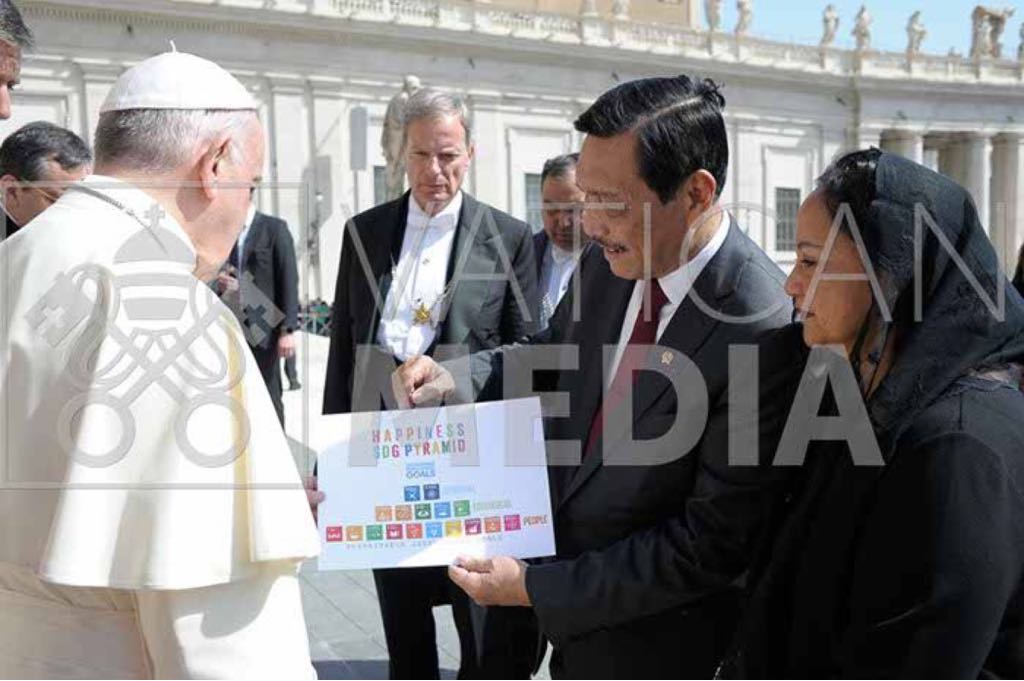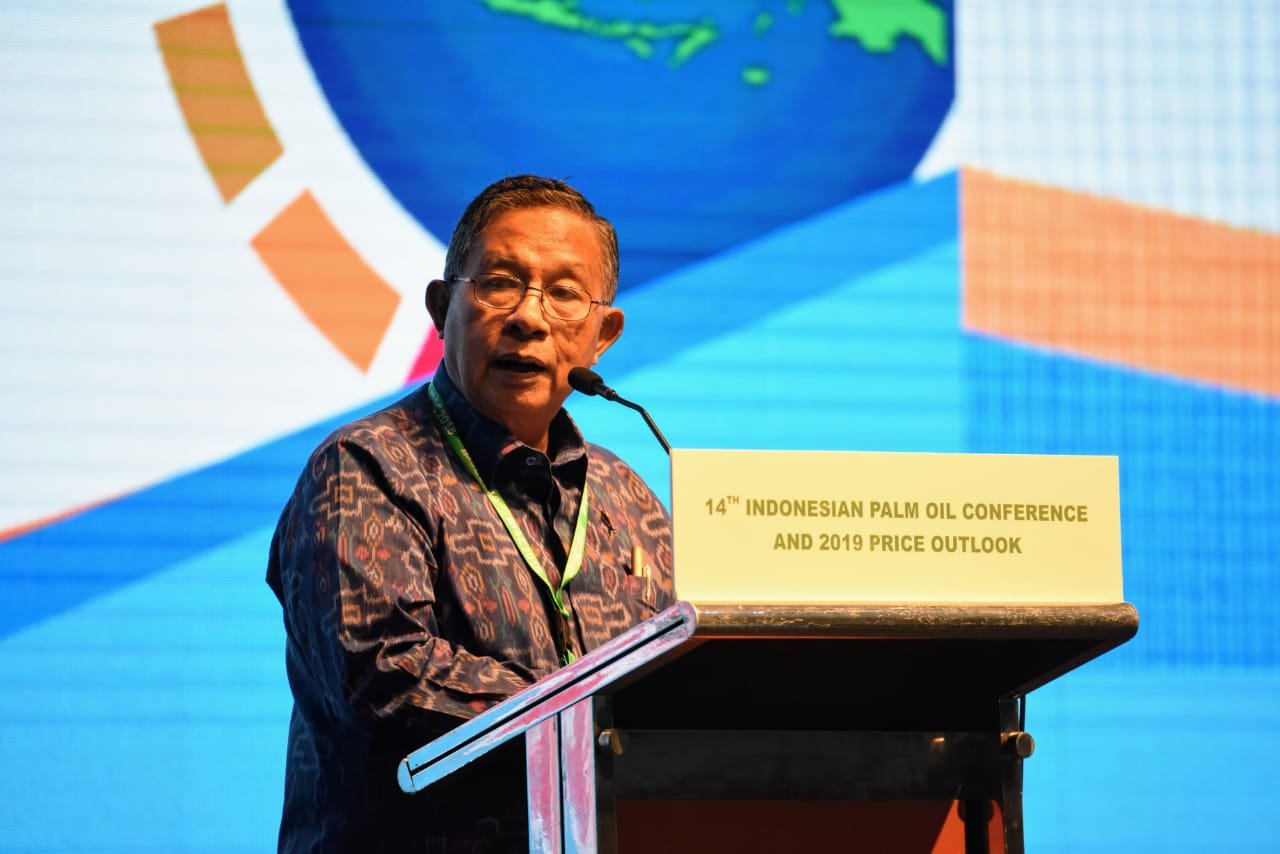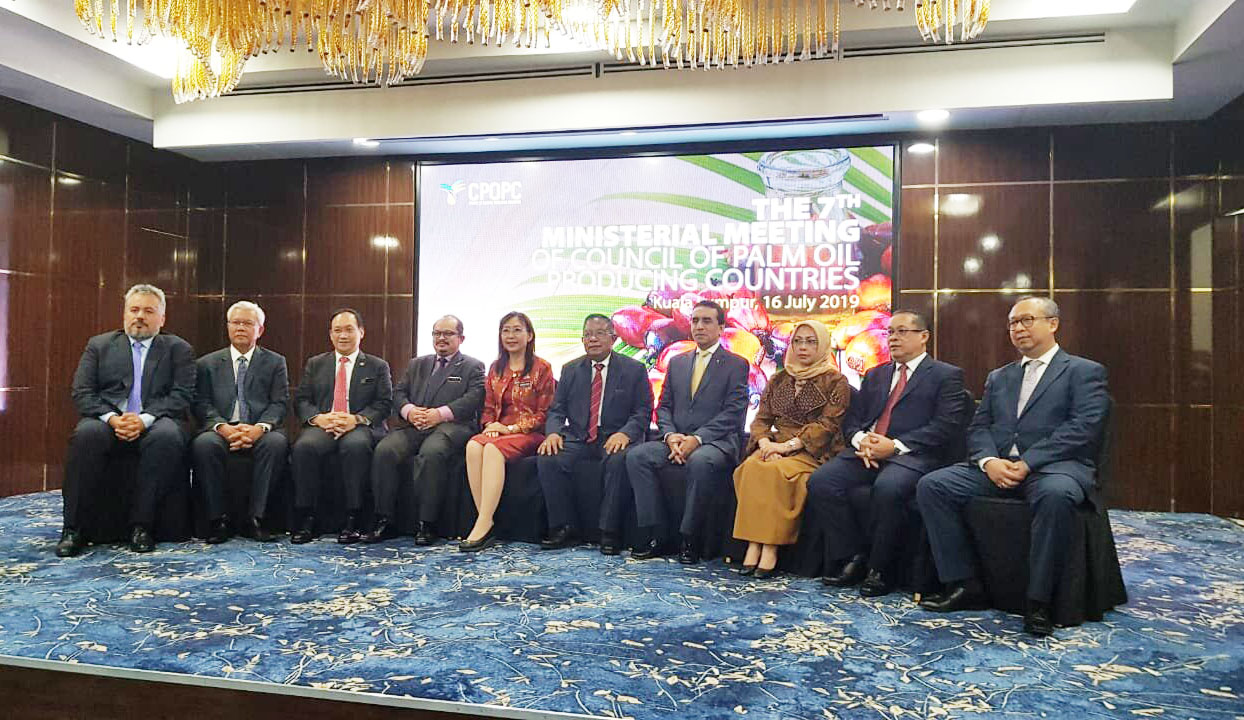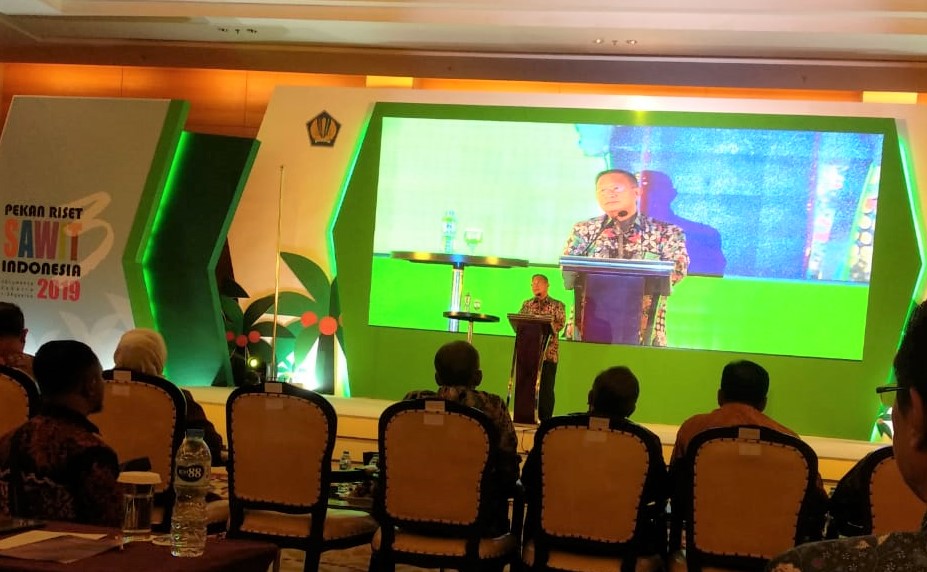Vatican to Help Indonesia Facing EU’s Policy on Palm Oil
Vatican will assist Indonesia in facing EU’s threats to eliminate the use of palm oil-based biodiesel.

VATICAN will assist Indonesia in facing EU’s threats to phase out the use of palm oil-based biodiesel. Director of the Pontifical Institute for Justice and Peace Cardinal Peter Turkson said to the Indonesian Negotiation Team on Restrictions on Palm Oil Products, in Vatican, Wednesday (25/4/2018).
In almost two-hours meeting, they discussed the possible measures to prevent the increase of number of poor people as a result of restrictions on palm oil products by the European Union.
"Cardinal Turkson said he was concerned with the livelihood of oil palm farmers and millions of people whose lives depend on the palm oil industry. Therefore, Cardinal Turkson has initiated a seminar to discuss this issues at the Pontifical University in the Vatican next month," Indonesian Coordinating Minister for Maritime Affairs Luhut Panjaitan, who led the negotiation team, said.
The seminar will invite various elements from the European Union, multinational companies using palm oil products, smallholder farmers especially from Malaysia and Indonesia as well as religious institutions.
Luhut proposed to invite the largest religious organizations such as NU and Muhammadiyah because poverty in Indonesia will drive substantial growth of radicalism.
Luhut also explained to Cardinal Turkson the actions Indonesia has taken in environmental aspects. Luhut gave an example of cleaning up Citarum river which had been labeled as the world's most polluted river. The cleaning up program was not only carried out by the community, but also involved soldiers and polices.
Cardinal Turkson has appreciated the government`s efforts to address a range of environmental issues including fishing and forest fires. Before the meeting with Cardinal Turkson, Coordinating Minister Luhut attended a general audience held at St. Peter`s Square with hundreds of other devotees.
Coordinating Minister Luhut had the opportunity to shake hands with Pope Francis and presented an invitation from President Joko Widodo to the Pope to visit Indonesia. "I submitted an invitation from the President to His Holiness Pope Francis and he said he would come," Luhut said.
Meeting with Colombian Partners in the afternoon, Luhut with the negotiation team also met with Colombian Minister of Agriculture and Rural Development Juan Guillermo Zuluaga at the Indonesian Embassy in The Hague.
On the occasion, Luhut invited Zuluaga to participate in a seminar to be held at the Vatican. The two ministers exchanged information on the policies and actions that have been undertaken and the joint work plan in the face of the threat of a plan to abolish the purchase of oil-based biodiesel products by the European Union.
Minister Zuluaga revealed that he has also done the same, meeting with some EU elements in Brussels and some members of Parliament in the Netherlands. Coordinating Minister Luhut informed Minister Zuluaga that PM Najib of Malaysia was also willing to do the same.
Colombia is currently the world's fourth largest palm oil producer with production of 1.28 million tons per year. "For our country, the EU plan is quite alarming because there are about 5,000 hectares of oil palm in Colombia owned by small farmers or entrepreneurs. I do the same with you. We conduct meetings and straighten out false understanding of oil palm, such as the impact of oil palm on health. The allegations are totally unfounded," Zuluaga said.
For Colombia, termination of purchases of palm oil products will increase the number of unemployed. Oil palm plantations have also created jobs for ex-rebel Fuerzas Armadas Revolucionarias de Colombia (FARC), as agreed in a government agreement with the FARC in November 2016. ***


































